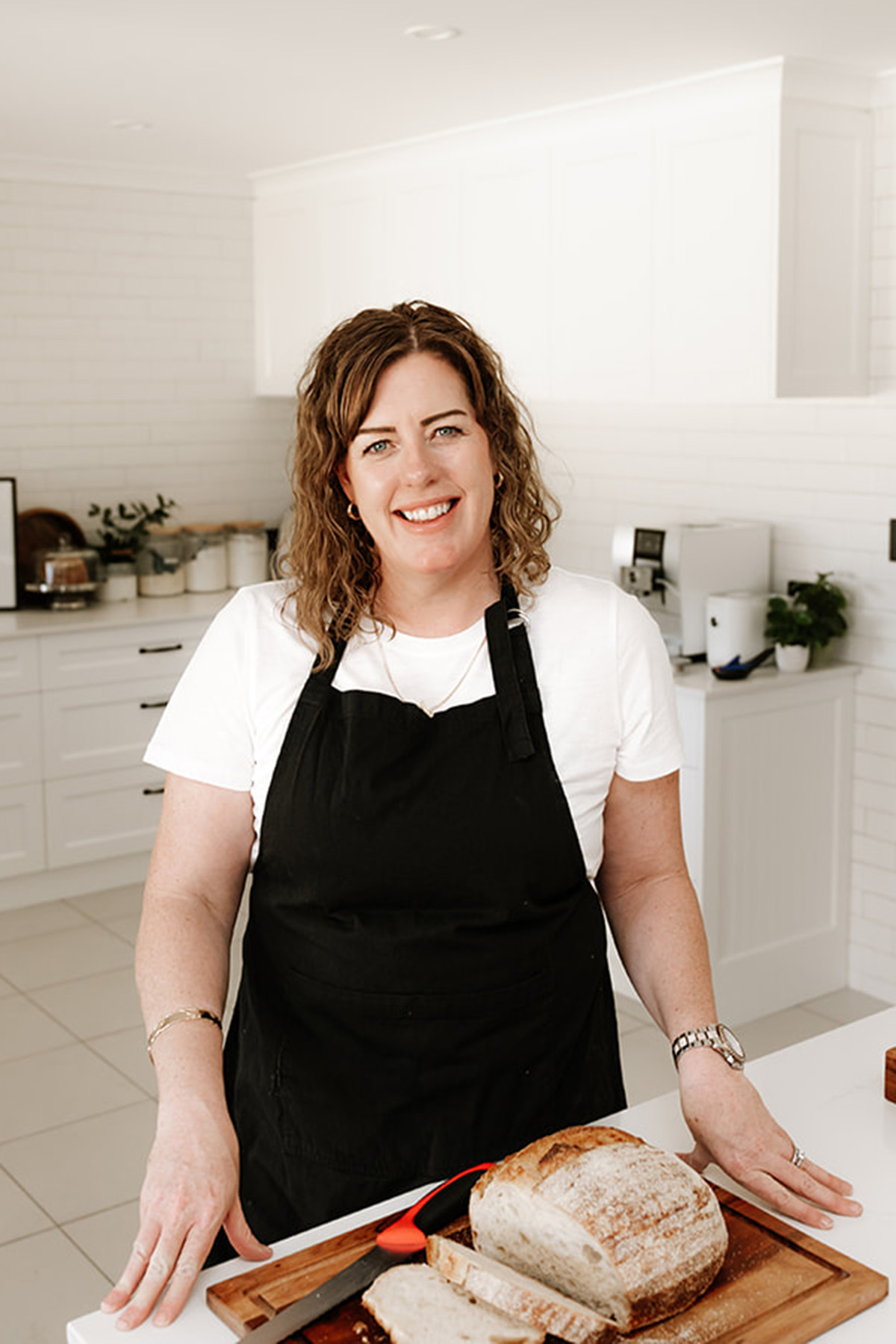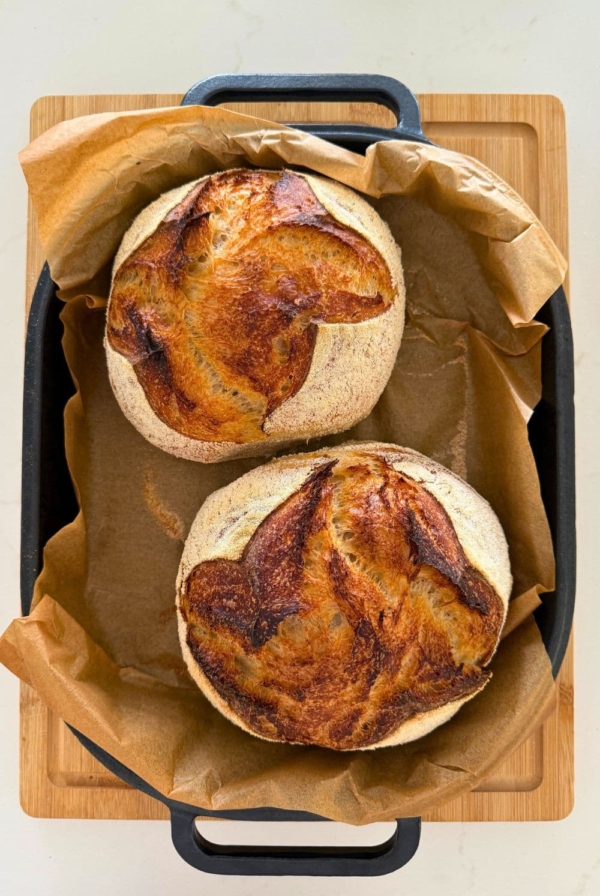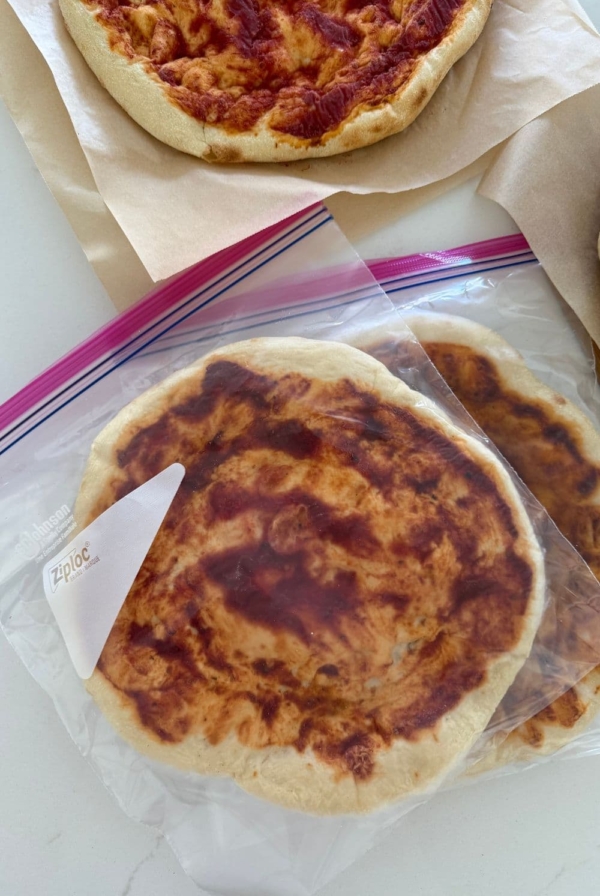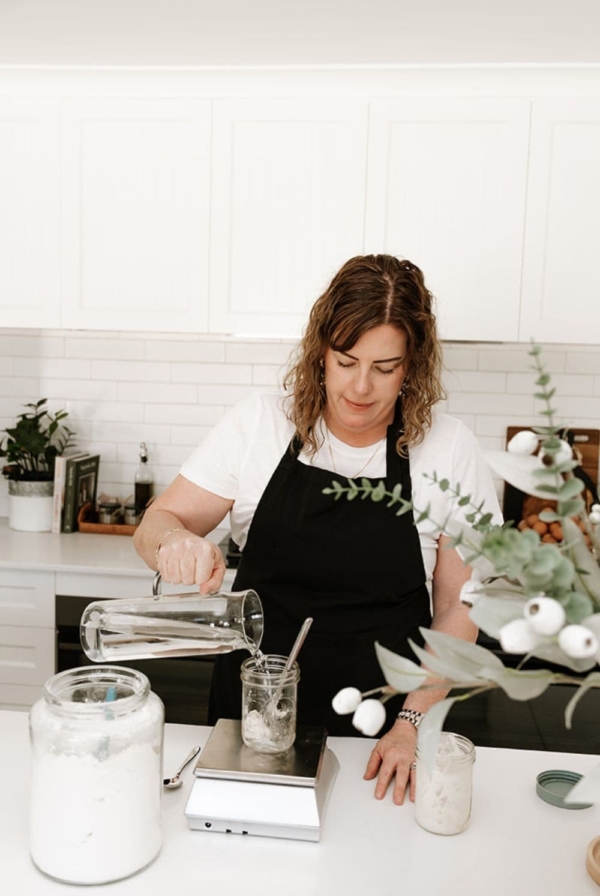This post contains affiliate links. Please see our disclosure policy.
Do you experience dry hands from kneading bread and making sourdough? You’re not alone! This is a common complaint among bread bakers – both professional and ametuer.
The good news is, there are many solutions to overcome dry hands from kneading bread and sourdough.
But before we can fix the problem, we need to know what is actually causing dry hands when kneading bread and sourdough.

Why Does Kneading Bread Dry Out Your Hands?
Kneading bread and sourdough can often dry out your hands because you’re constantly touching flour, which is a dry, abrasive substance. This is particularly true if you are kneading bread a lot – ie every day or several times a day.
It can also happen when you first start to bake bread, as your hands and nails are not used to being immersed in flour.
Constant hand washing, particularly in hot or soapy water, can also rid your hands of essential oils, drying your hands further. This can also contribute to your fingernails splitting or becoming brittle.

How To Stop Hands Drying Out From Kneading Bread
Some solutions to stop your hands drying out when handling bread dough and sourdough are:
- Try not to wash your hands so often when handling bread dough. If you have sticky dough stuck to your hands and fingers, try to rub most of it off over the bin, rather than scrubbing your hands.
- Apply olive oil or coconut oil to your hands regularly – remembering to massage into your nails and cuticles too. Using food safe oil can be a good option if you want to apply it during your baking sessions. Almond and macadamia oils can be a nice treat for hands too!
- Consider using more natural hand soaps in the kitchen to avoid drying your hands out further. Placing a bottle of easily accessible hand lotion next to the kitchen sink can help too – applying a layer once you’ve finished kneading/ dough handling for the day can help to keep your hands from drying out. I love this natural olive oil based set to sit beside the kitchen sink!
- If you are really struggling with dry, cracked hand, you may consider wearing gloves to knead the dough or using a stand mixer to knead your dough so you’re not directly touching the dough.

Should You Avoid Anti-Microbial Soaps When Making Sourdough?
Absolutely. Sourdough is home to a colony of microbes. Anti microbial soap is designed to kill microbes and bacteria.
As a baker, your hands are part of your sourdough – many of the yeast and microbes present in your starter have come from you. In fact, it’s a bidirectional relationship meaning that the bacteria and microbes go both ways.
Killing off those good microbes and bacteria on your hands is not a good idea.
And in fact, antimicrobial soaps are often harsh and laden with chemicals you don’t really want on your skin.
Instead of using these soaps, particularly in the kitchen, look for nourishing, natural soaps that don’t kill the good stuff!
If you are washing a lot of dishes by hand, also look at more natural alternatives for dish washing too, as having your hands in harsh dishwashing liquids will also contribute to sore, dry hands.
Some of my favorite natural liquid handsoaps to use in the kitchen are:
- Evolved By Nature Liquid Handsoap (unscented + super moisturising)
- Puracy Liquid Handsoap Lavender + Vanilla
- Odor Neutralising Liquid Handsoap by Kirk’s
Consider Making Your Own Soaps and Lotions
If you are starting a homestead or just want to be a little more natural around your home, making your own soaps and lotions is a great way to do it.
You will know exactly what’s in your products, you’ll save money and your dry hands will thank you for it!
If you are going to make your own soaps, perhaps consider making one with a natural exfoliant like rolled oats, apricot kernals or even dried sourdough breadcrumbs!

Frequently Asked Questions
Bakers and chefs can have issues with dry hands from washing their hands constantly. It’s a common occurrence, however is not normally from the dough or foods they are touching, rather the soap and hot water they are using to wash their hands for food safety. Changing the soap they are using and applying a good quality hand lotion can put an end to this problem.
No you should not put flour on your hands before touching sourdough or bread dough. This will dry the dough out further and exacerbate your issue with dry hands. If the dough is sticky, it will come together as your work with the dough. Alternatively, splashing your hands with a little water can be a better solution than adding more flour to your hands and or dough.
Bakers hands refers to the microbes found both on a baker’s hands and in their sourdough starter/bread. In general, the yeast and microbes on a bakers hands will be reflected in their sourdough starter. You can read more about bakers hands and their benefits here.
Many people report that their hands have become itchy and sore when they start making sourdough bread at home. There can be a few reasons for this – it can be caused by more frequent hand washing in the kitchen or exposure to flour which you may not be used to. It can take time for your hands to adjust to your new hobby. If you are using a sourdough starter that you’ve bought or acquired from someone/somewhere else, it could also be your hands reacting to different microbes and yeast that you’ve not been exposed to before. If the problem persists, you may need to wear gloves when kneading your dough or consider using a stand mixer to limit your hands on dough time.

Further Reading
Looking for more articles like this one? You might enjoy these:
- 30 Tips for Cleaner Sourdough Baking
- Where Does The Yeast In Sourdough Starter Come From?
- How to use a Stand Mixer for Sourdough Bread










